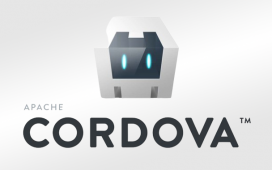By Jon Lucas

The events of 2020 have completely reshaped the working model as we know it. We are now seeing an unprecedented proportion of the workforce moving towards remote working, prompting companies such as Google, Uber, and Airbnb to extend work from home set-ups. A recent study conducted by Gartner found that 74 percent of CFOs plan to shift at least 5 percent of previously on-site employees to permanent remote positions. This new normal has opened doors for cybercriminals who are taking advantage of remote set-ups and exploiting businesses’ vulnerabilities to steal their data. Due to information becoming the new currency, concerns over data protection and disaster recovery are growing, pushing businesses to reevaluate their IT infrastructures.
With millions of people working remotely, forcing sudden changes and exposures in IT environments, businesses need to guarantee that data is conveniently accessible to all their workers, whilst also, and most importantly, ensuring it is secure. Therefore, companies need to adopt suitable IT solutions that will prevent cyberattacks and keep their data safe and available, securing the company’s future. Here are some IT solutions which can keep your data safe and remotely accessible at the same time:
Web Application Firewall (WAF)
This solution creates a shield between a web application and the Internet, blocking a variety of malicious attacks such as cross-site scripting or SQL injection, among others. With the majority of employees working remotely, web application firewalls are indispensable. Home firewalls aren’t configured with the right security settings, allowing employees to visit poorly-secured websites and inviting hackers to access confidential data. Workers may also store personal data such as credit card numbers, passwords, or financial records in their remote devices, putting this information at risk of being stolen. The implementation of a WAF adds an extra layer of protection, making a company and its workers a more challenging target and acting as a deterrence to hackers.
Virtual Private Network (VPN)
A VPN is a basic security requirement for businesses during this new remote work era. A VPN works like a virtual ethernet cable. It creates a tunnel that connects the employee’s device directly to the company’s internal network. By activating the VPN, the employee can access the data which is protected by encryption and security protocols, blocking any attacker trying to access the information being transferred. The use of a VPN is the perfect solution to securely connect workers to a remote office.
Private cloud
Another IT solution that is currently being embraced by companies is private cloud. This solution offers businesses full control of every aspect of the infrastructure as it is run on dedicated hardware, providing the ultimate security. Migrating the infrastructure to the cloud means that cloud providers will keep sensitive information protected, guaranteeing safe storage and access to data. Employees can access the server securely, at any time, from anywhere. In addition, private cloud allows for unlimited scalability enabling the cloud server to grow at the same pace as the business and its remote working demands.
Backup as a Service (BaaS)
Companies are exposed to cyberattacks daily, which can result in a total disruption of a company’s functions, putting its continuity at risk. For this reason, having a robust backup is key to keep the workforce safeguarded and operating so businesses can retrieve all their data if a tech disaster strikes. Backup as a Service (BaaS) duplicates files from a primary on-premise, or off-site location, to another off-site secure data center, protecting all sensitive information in case of cyberattacks, data loss, or any other kind of damage. BaaS provides the IT team peace of mind, having the necessary data always available to ensure business continuity.
Disaster recovery
A similar solution to BaaS is Disaster Recovery which goes beyond a simple backup, as it not only duplicates data, but it also replicates a company’s entire infrastructure. Having a disaster recovery plan should be an essential part of every business strategy, especially for those that require constant uptime and data replication. In a scenario where a company has been hacked and its IT services fail, disaster recovery would be the only way to save the company from a total loss as its infrastructure would be recovered and able to operate as normal within minutes.
Better safe than sorry
In the same way that cybercriminals rapidly adapt their strategies, so should businesses. With the numerous IT challenges faced by the adoption of remote working, a cybersecurity plan is no longer an option but a necessity. While cybercrime continues to rise, it is vital for securing data and employees’ privacy to be at the forefront of a company’s priorities. These attacks are compromising the resilience of businesses and challenging their disaster recovery plans. Consequently, companies must reevaluate and reorganize their IT infrastructure, implementing a strategy that protects the company, while keeping up with the ongoing digital transformation.
About the author

Jon Lucas is the CEO and co-founder of Hyve Managed Hosting, a global tech firm based in England




